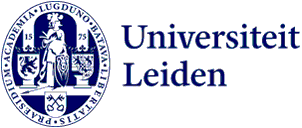Lezing
Student Talk: Venus as Potentially Habitable Planet
- Datum
- woensdag 7 februari 2024
- Tijd
- Bezoekadres
- Gorlaeus Building
- Zaal
- EM.1.09
Student Talk
Deze lezing is in het Engels. Er zijn gratis hapjes en drankjes aanwezig.
For thousands of years, inspired by the star-filled dark night sky, people have wondered what lies beyond Earth. Today, the search for signs of life is a key motivator in modern-day planetary exploration. Scientists have been speculating on Venus as a habitable world for over half a century, not the scorching surface, but the much cooler atmosphere at 48 to 60 km above the surface. The concept is that Venus’ perpetual cloud cover might host life, as Earth’s clouds do. Many different decades-old Venusian atmosphere anomalies may support this concept. The Venus clouds, however, are not made of water but are composed of concentrated sulfuric acid—an aggressive chemical that is toxic for Earth life. New lab-based experiments on the stability of nucleic acid bases, amino acids, and dipeptides in concentrated sulfuric acid advance the notion that the Venus atmosphere environment may be able to support complex chemicals needed for life and motivate the astrobiology-focused Morning Star Missions to Venus.

Over Sara Seager
Professor Sara Seager is a Professor of Physics, Planetary Science, Aeronautics and Astronautics at the Massachusetts Institute of Technology where she holds the Class of 1941 Professor Chair. She has been a pioneer in the research field of exoplanets, with ground-breaking work ranging from the detection of exoplanet atmospheres to innovative theories about life on other worlds, to development of novel space mission concepts.
Professor Seager was the Deputy Science Director of the MIT-led NASA Explorer-class mission TESS, was PI of the JPL-MIT CubeSat ASTERIA, and is a lead of the Starshade Mission concepts to find a true Earth analog orbiting a Sun-like star. Her most recent work includes running the Morning Star Missions to Venus international consortium. Among other accolades she is a MacArthur Fellow, a member of the US National Academy of Sciences, an Officer of the Order of Canada, and has Asteroid 9729 named in her honor.
